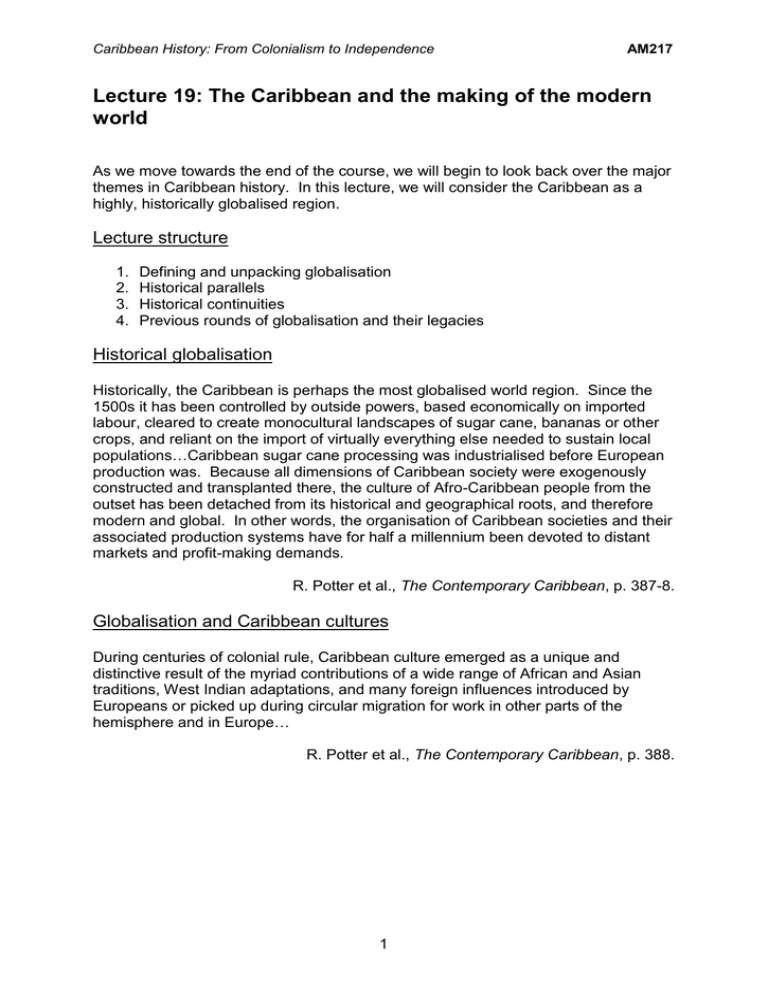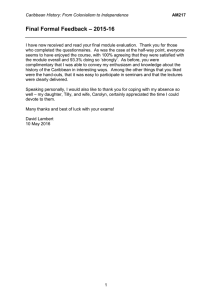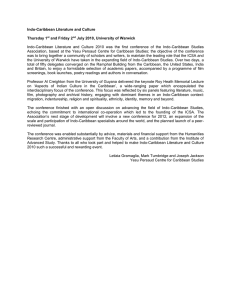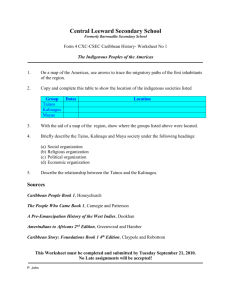Lecture 19: The Caribbean and the making of the modern world
advertisement

Caribbean History: From Colonialism to Independence AM217 Lecture 19: The Caribbean and the making of the modern world As we move towards the end of the course, we will begin to look back over the major themes in Caribbean history. In this lecture, we will consider the Caribbean as a highly, historically globalised region. Lecture structure 1. 2. 3. 4. Defining and unpacking globalisation Historical parallels Historical continuities Previous rounds of globalisation and their legacies Historical globalisation Historically, the Caribbean is perhaps the most globalised world region. Since the 1500s it has been controlled by outside powers, based economically on imported labour, cleared to create monocultural landscapes of sugar cane, bananas or other crops, and reliant on the import of virtually everything else needed to sustain local populations…Caribbean sugar cane processing was industrialised before European production was. Because all dimensions of Caribbean society were exogenously constructed and transplanted there, the culture of Afro-Caribbean people from the outset has been detached from its historical and geographical roots, and therefore modern and global. In other words, the organisation of Caribbean societies and their associated production systems have for half a millennium been devoted to distant markets and profit-making demands. R. Potter et al., The Contemporary Caribbean, p. 387-8. Globalisation and Caribbean cultures During centuries of colonial rule, Caribbean culture emerged as a unique and distinctive result of the myriad contributions of a wide range of African and Asian traditions, West Indian adaptations, and many foreign influences introduced by Europeans or picked up during circular migration for work in other parts of the hemisphere and in Europe… R. Potter et al., The Contemporary Caribbean, p. 388. 1


